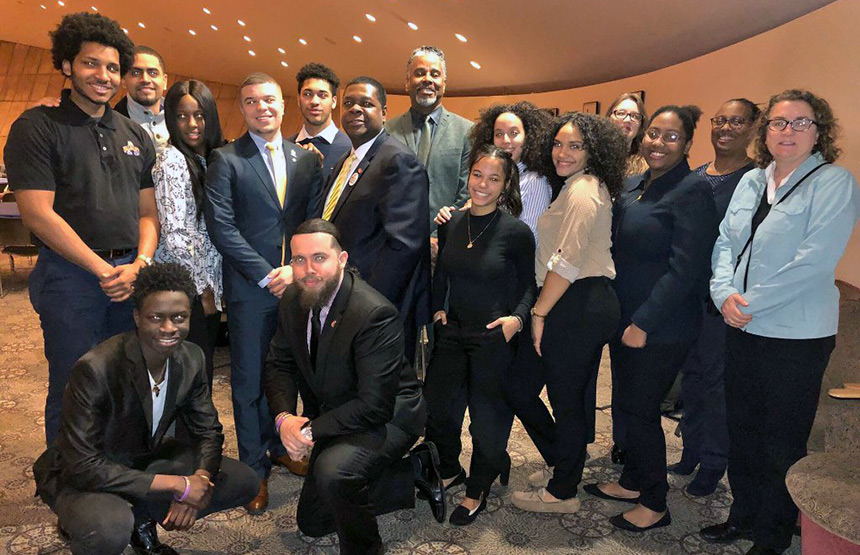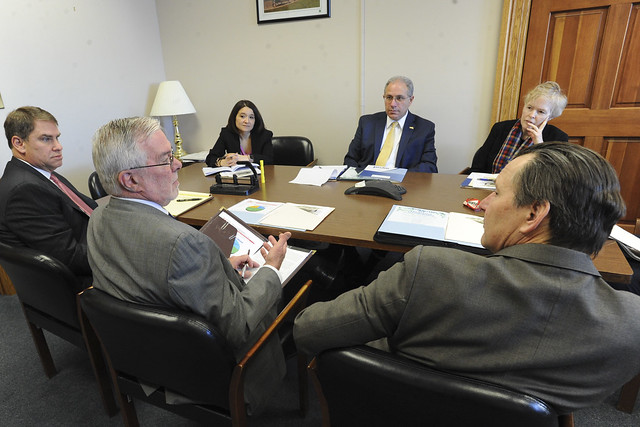“Graduation rates are not what they should be, we can agree on that,” said Sharon Persinger of the Professional Staff Congress at CUNY. “But the university doesn’t have the resources for our growing enrollment to graduate on time.”
CUNY has a quarter of a million students, but after decades of declining state fiscal support, “many students find themselves needing, for example, two courses to graduate, but may have to wait three semesters to get them.”
The Excelsior Scholarship that guarantees “last-dollar-in” support has helped improve affordability for students, but it has also increased enrollments in four-year colleges and placed further stress on the state’s already underfunded and overburdened public higher education institutions in the state and city universities, volunteer activists told lawmakers on NYSUT’s annual higher ed lobby day Wednesday.
“We support the Excelsior Scholarship that provides access,” John Schumacher, a member of United University Professions, told Sen. Kevin Parker, D-Brooklyn, during a quick meeting outside the state Senate Chamber. “But let’s make sure these students can succeed.” UUP represents academic and professional faculty on SUNY campuses.
NYSUT is asking the state to make a significant investment in SUNY and CUNY in the 2018-19 state budget, saying it’s time to focus on the quality of the education available, as well as the accessibility.
Hundreds of students were bussed to the Capitol, some leaving in Wednesday’s predawn darkness from far-flung campuses, to help make the case for increased support. Dozens came from Suffolk Community College alone, all the way from the eastern end of Long Island.
“Community college, for many students, is the first point of higher education,” said Roberta Elins, president of United College Employees of FIT and chair of NYSUT’s Higher Education Policy Council, “but we’re sometimes treated like the stepchild. We’ve never, since the ‘70s, been funded at the levels that are mandated by law.”
NYSUT seeks an increase in base aid to community colleges of $253 per full-time equivalent, which would raise the per-student spending level to $3,000. “It still would not be enough, but it would start to get us a little closer to where we need to be,” Elins said.

Photo by Peter Kim.
NYSUT urges the Legislature to invest in CUNY and SUNY by:
- providing state funding to fully cover the “TAP gap” costs borne by four-year campuses at a total cost of $124 million. This would be a down payment against $243 million in mandatory costs that the systems must cover;
- boosting community college base aid by $253 per FTE student;
- restoring the $78.6 million state subsidy and ensuring that SUNY’s hospitals receive their full state match of Disproportionate Share Hospital Payments, because they serve more uninsured and underinsured patients; and
- providing $150 million for a CUNY Student Success Initiative.
Photo Gallery
